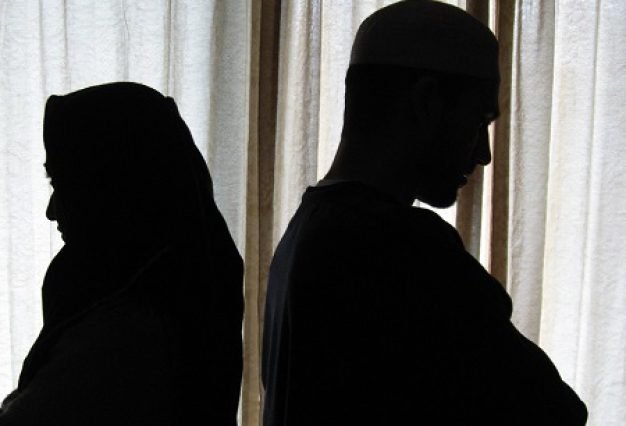Answered by Shaykh Yusuf Badat
Question:
I have a question regarding raḍā’ah (breastfeeding). Is the new husband of one’s foster mother a maḥram? Example: if ‘Ayeshā and Bilāl were married and have some biological children together. ‘Ayeshā also breastfed a baby girl called Zaynab. Later Bilāl dies, and ‘Ayesha marries Yūsuf. Will Yūsuf (the new husband of ‘Ayeshā) be foster father to Zaynab? Will Yūsuf be maḥram of Zaynab? (Although the milk which was produced in ‘Ayeshā which she fed Zaynab had nothing to do with Yūsuf). Please clarify!
Answer:
بِسْمِ اللهِ الرَّحْمنِ الرَّحِيْم
In the name of Allāh, Most Gracious, Most Merciful.
Jazāk Allāh Khayr/ Thank you for contacting Mathabah Institute.
Yes, the new husband of one’s foster mother is a maḥram. In your example, Yūsuf will be a maḥram for Zaynab. This is because a step father is regarded as a maḥram and forbidden for marriage. In Islamic law, whatever is forbidden by lineage also becomes forbidden by the foster relationship. – (See: Al-Fatāwā Al-Hindiyyah, Vol 1, Page 343, Dār Al-Fikr)
“Prohibited to you [for marriage] are [also] your step-daughters under your guardianship [born] of your wives unto whom you have had intercourse.” – (Qur’ān 4:23)
‘Āyesha (may Allāh be pleased with her) reported that the Prophet (peace and blessings be upon him) said, “What is unlawful by lineage also becomes unlawful by breast-feeding.” – (Nasa’īe 3302)
Only Allāh knows best
يُحَرَّمُ عَلَى الرَّضِيعِ أَبَوَاهُ مِنْ الرَّضَاعِ وَأُصُولُهُمَا وَفُرُوعُهُمَا مِنْ النَّسَبِ وَالرَّضَاعِ جَمِيعًا حَتَّى أَنَّ الْمُرْضِعَةَ لَوْ وَلَدَتْ مِنْ هَذَا الرَّجُلِ أَوْ غَيْرِهِ قَبْلَ هَذَا الْإِرْضَاعِ أَوْ بَعْدَهُ أَوْ أَرْضَعَتْ رَضِيعًا أَوْ وُلِدَ لِهَذَا الرَّجُلِ مِنْ غَيْرِ هَذِهِ الْمَرْأَةِ قَبْلَ هَذَا الْإِرْضَاعِ أَوْ بَعْدَهُ أَوْ أَرْضَعَتْ امْرَأَةٌ مِنْ لَبَنِهِ رَضِيعًا فَالْكُلُّ إخْوَةُ الرَّضِيعِ وَأَخَوَاتُهُ وَأَوْلَادُهُمْ أَوْلَادُ إخْوَتِهِ وَأَخَوَاتِهِ وَأَخُو الرَّجُلِ عَمُّهُ وَأُخْتُهُ عَمَّتُهُ وَأَخُو الْمُرْضِعَةِ خَالُهُ وَأُخْتُهَا خَالَتُهُ وَكَذَا فِي الْجَدِّ وَالْجَدَّةِ – كتاب الفتاوى الهندية ج١/ ص٣٤٣ دار الفكر
حُرِّمَتْ عَلَيْكُمْ أُمَّهَاتُكُمْ وَبَنَاتُكُمْ وَأَخَوَاتُكُمْ وَعَمَّاتُكُمْ وَخَالَاتُكُمْ وَبَنَاتُ الْأَخِ وَبَنَاتُ الْأُخْتِ وَأُمَّهَاتُكُمُ اللَّاتِي أَرْضَعْنَكُمْ وَأَخَوَاتُكُم مِّنَ الرَّضَاعَةِ وَأُمَّهَاتُ نِسَائِكُمْ وَرَبَائِبُكُمُ اللَّاتِي فِي حُجُورِكُم مِّن نِّسَائِكُمُ اللَّاتِي دَخَلْتُم بِهِنَّ فَإِن لَّمْ تَكُونُوا دَخَلْتُم بِهِنَّ فَلَا جُنَاحَ عَلَيْكُمْ وَحَلَائِلُ أَبْنَائِكُمُ الَّذِينَ مِنْ أَصْلَابِكُمْ وَأَن تَجْمَعُوا بَيْنَ الْأُخْتَيْنِ إِلَّا مَا قَدْ سَلَفَ إِنَّ اللَّهَ كَانَ غَفُورًا رَّحِيمًا – النساء ٢٣
عَنْ عَائِشَةَ عَنِ النَّبِيِّ صلى الله عليه وسلم قَالَ يَحْرُمُ مِنَ الرَّضَاعِ مَا يَحْرُمُ مِنَ النَّسَبِ – رواه النسائي ٣٣٠٢




